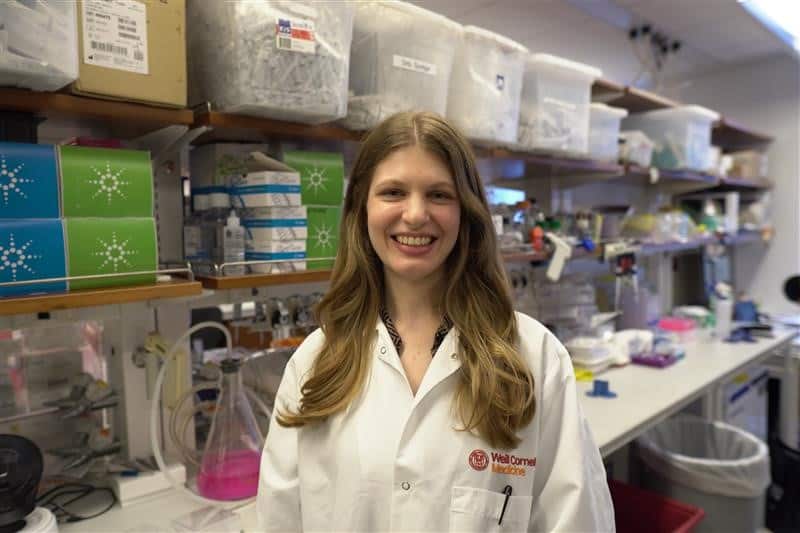Anca Apavaloaei, PhD is a postdoctoral researcher at Weill Cornell Medicine, where she’s pioneering the development of off-the-shelf anti-cancer vaccines targeting LINE-1-derived antigens. LINE-1, a retrotransposon that remains active in cancer cells, could provide a novel source of tumor antigens for immune-targeting therapies. Her research aims to identify these antigens and test if vaccines targeting them could enhance immune responses in a broad range of cancers, from gastroesophageal to melanoma and lung cancer.
With a strong foundation in immunology and data science, Dr. Aprovaloaei’s journey began in 2013, where her work on MHC class I peptide selection led to important insights into immune recognition of disease. During her PhD at the University of Montreal, she furthered her expertise by applying computational techniques to uncover new tumor antigen targets for vaccine development, culminating in a Best Thesis Award.
“By targeting the unique molecular programs that drive cancer, we can harness the immune system to fight tumors in a more precise and effective way,” says Dr. Aprovaloaei. Her ongoing work at Weill Cornell, alongside Dr. Taha Merghoub and Dr. Benjamin Greenbaum, is a promising step toward novel cancer immunotherapies.
Projects and Grants
Identification of LINE-1 Derived Antigens for Development of Off-the-Shelf Anti-Cancer Vaccines
Weill Cornell Medicine | All Cancers | 2025 | Taha Merghoub, PhD, and Benjamin Greenbaum, PhD

